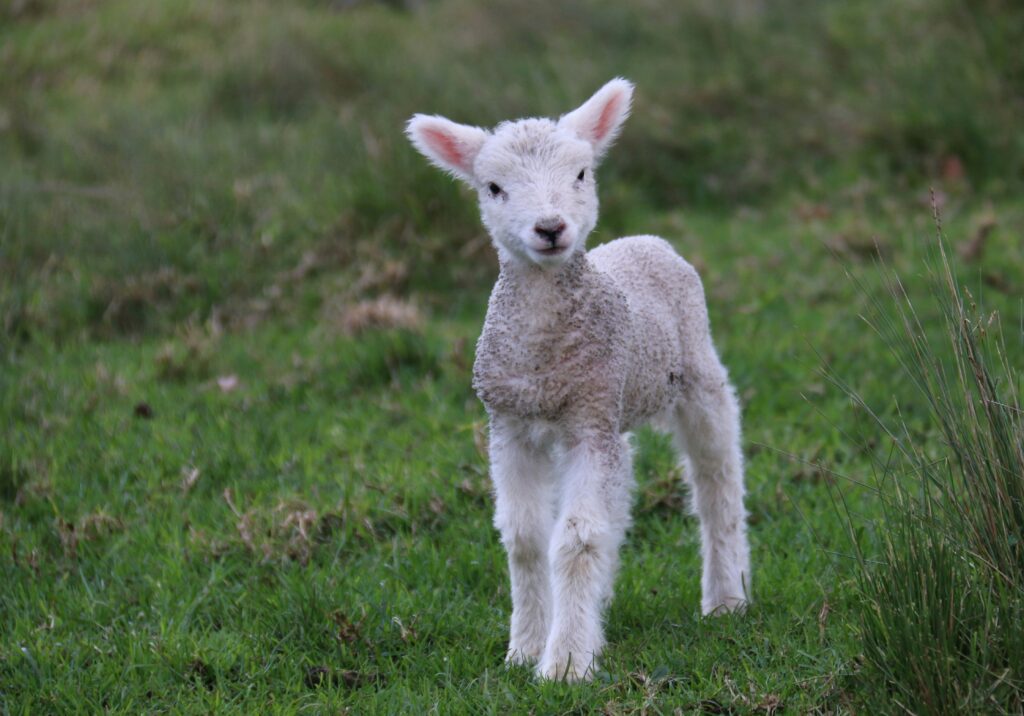We take a look at the he reality of animal cruelty in the tourist industry and how we can all avoid being part of the problem.
If you Googled ‘where to bottle-feed lambs in Essex’ and you’ve clicked into this blog, then please do continue to read before you decide to book that ‘cute’ experience for you or your family. In the coming months, and we’re not going to lie, it will break our hearts to see the happy photos of families, especially children, splashed all over social media while taking part in lamb feeding activities. But how many of you question why that lamb is being bottle-fed by humans, and not by their mother, and what happens to that lamb once they are no longer a cute commodity to wherever it is you’ve paid to take part in this less than ethical activity?
What happens when lambs are taken away from their mothers?
These young, vulnerable creatures often face a harsh reality once separated from their mothers. The artificial method of feeding, while sometimes necessary due to various reasons, can nonetheless lead to a myriad of health issues, including malnutrition and weakened immune systems. The fate of these bottle-fed lambs often remains uncertain, with many facing premature death or being sold into environments where their well-being is not prioritised.
In addition to the health challenges these lambs face, bottle-fed lambs often experience behavioural issues. They do not learn the social and survival skills that would be naturally imparted by their mothers and flock. This lack of natural learning can lead to difficulties in integrating with other sheep and in grazing efficiently. Bottle-fed lambs might also exhibit more dependency on human caregivers, which can be problematic when they are eventually expected to fend for themselves once ‘bottle-feed a lamb’ season is over.
Do these bottle-fed lambs end up being slaughtered?
Almost 14 million sheep, including lambs, are slaughtered for the meat trade each year, with most lambs killed at 6-8 months (but are considered lambs until 14 months). That lamb you are bottle-feeding could very, very well be part of that shocking number. Lambs ARE raised primarily for their meat, and a significant number of them are sent to slaughter at a young age. In the European Union alone, approximately 70 million sheep are slaughtered annually, a large proportion of which are lambs.
The journey to slaughterhouses can be incredibly stressful and traumatic for these young animals. They are often transported over long distances in crowded trucks, without adequate food, water, or rest. This stressful environment can lead to injuries, illnesses, and even death during transit. Once at the slaughterhouse, lambs face a swift and often inhumane end. The methods used in slaughterhouses vary, but they often involve stunning the animals before killing them, a process that can sometimes go wrong, causing unnecessary suffering. Not quite the happy picture painted when you’re bottle-feeding lambs as a ‘wholesome’ (we’ve seen that word used a lot in advertising) activity with your children. Fattening lambs up for slaughter is far from wholesome in our opinion.

The life of a bottle-fed lamb is fraught with challenges from the very beginning. From health issues due to lack of maternal care to the grim reality of being sent to slaughter, these lambs face a multitude of hardships. It is crucial to consider the welfare of these animals and to strive for better practices in both farming and slaughter to ensure they are treated with the compassion and respect they deserve. And that starts with refusing to pay to be a part of the problem. Instead of bottle-feeding lambs in Essex (and beyond), why not come to an animal sanctuary like Hopefield, where you can see firsthand how much joy and zest for life these kind creatures have? Most of our flock have been rescued from abuse and the meat trade, so your ticket will be used to better the life of animals, not pay towards a, frankly, horrible demise.
We re-open to the public at the end of March, so hopefully spring will be in bloom and you can spend a day in the countryside meeting ALL of our animals and learning more about how an animal sanctuary differs from a farm park – we can’t wait to meet you all!
Sign up here for the fun updates from the animals, information about the latest news at the sanctuary and exclusive offers and events.


Join Hopefield’s mailing list to be the first to know about all things happening at the sanctuary and exclusive offers and events!